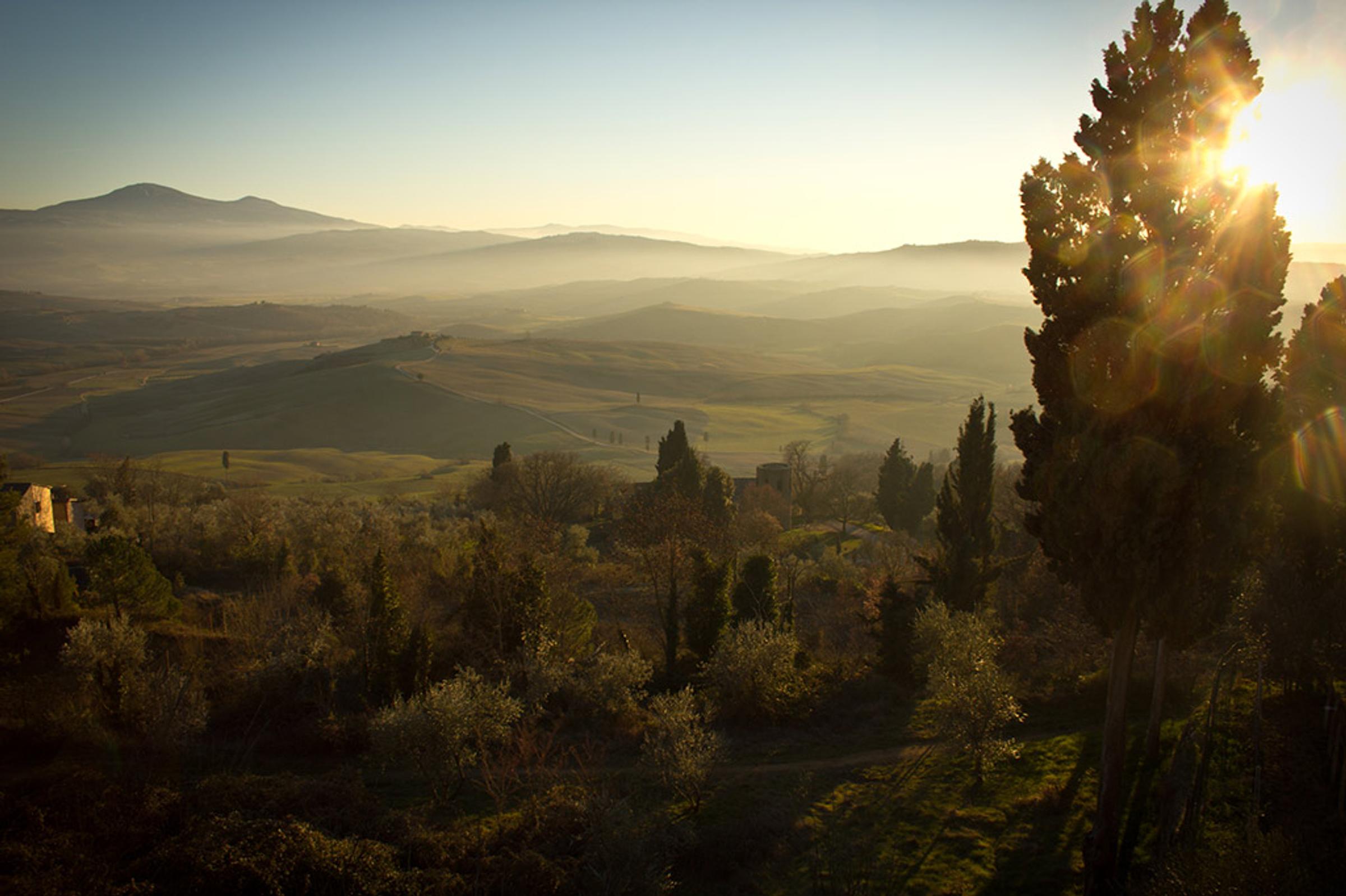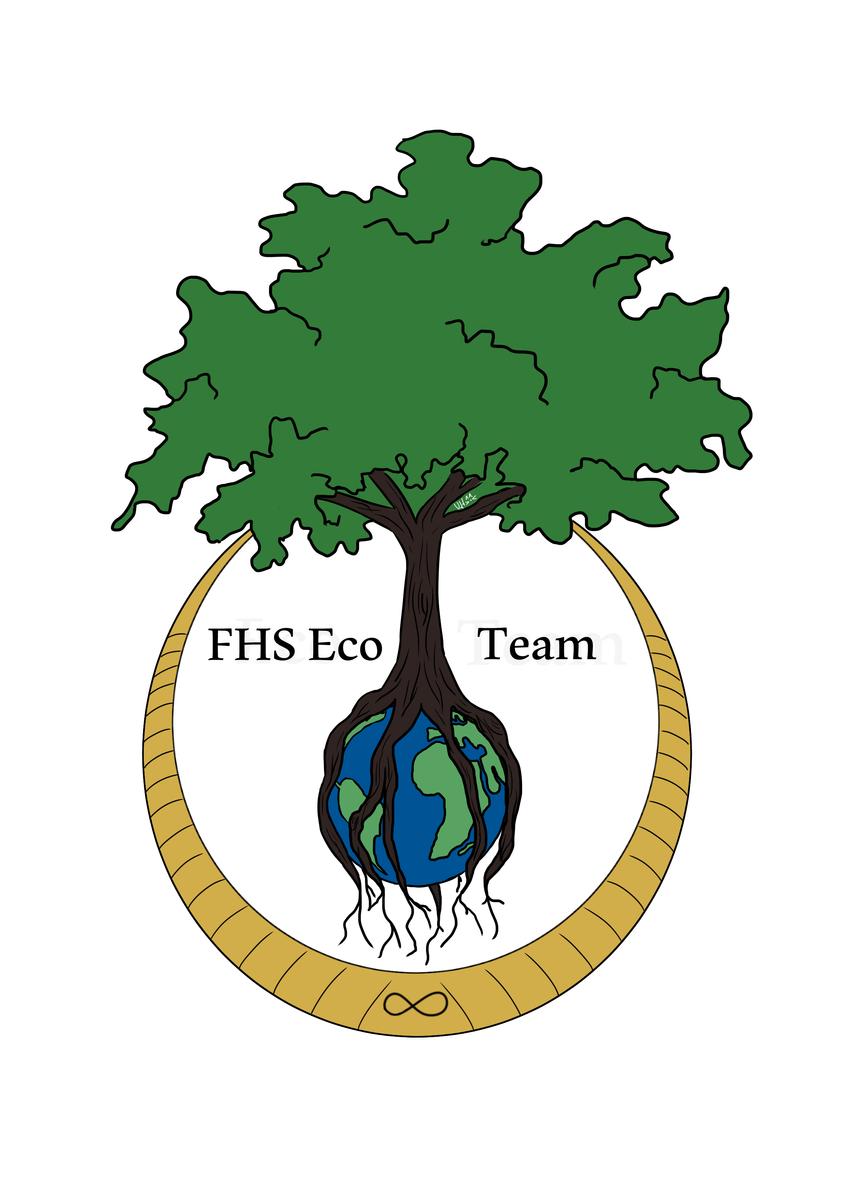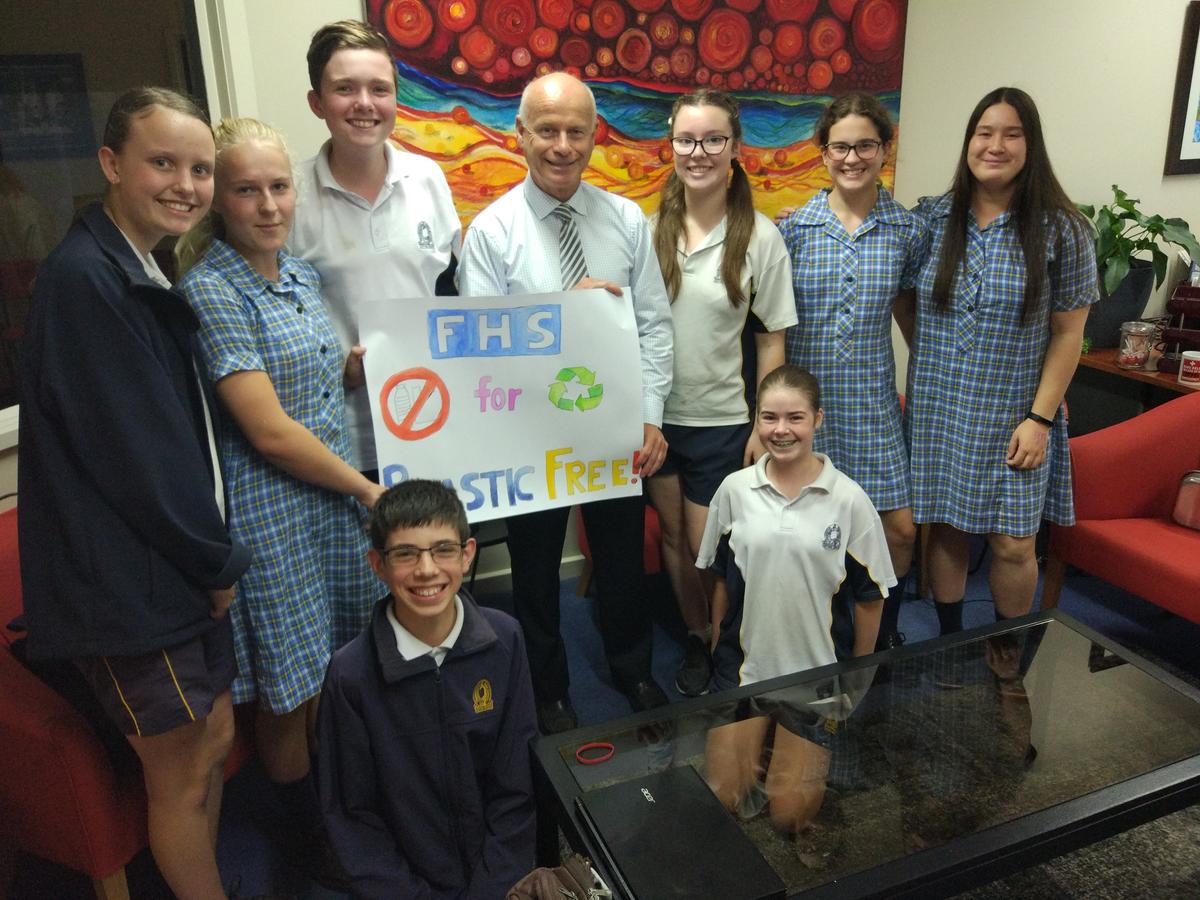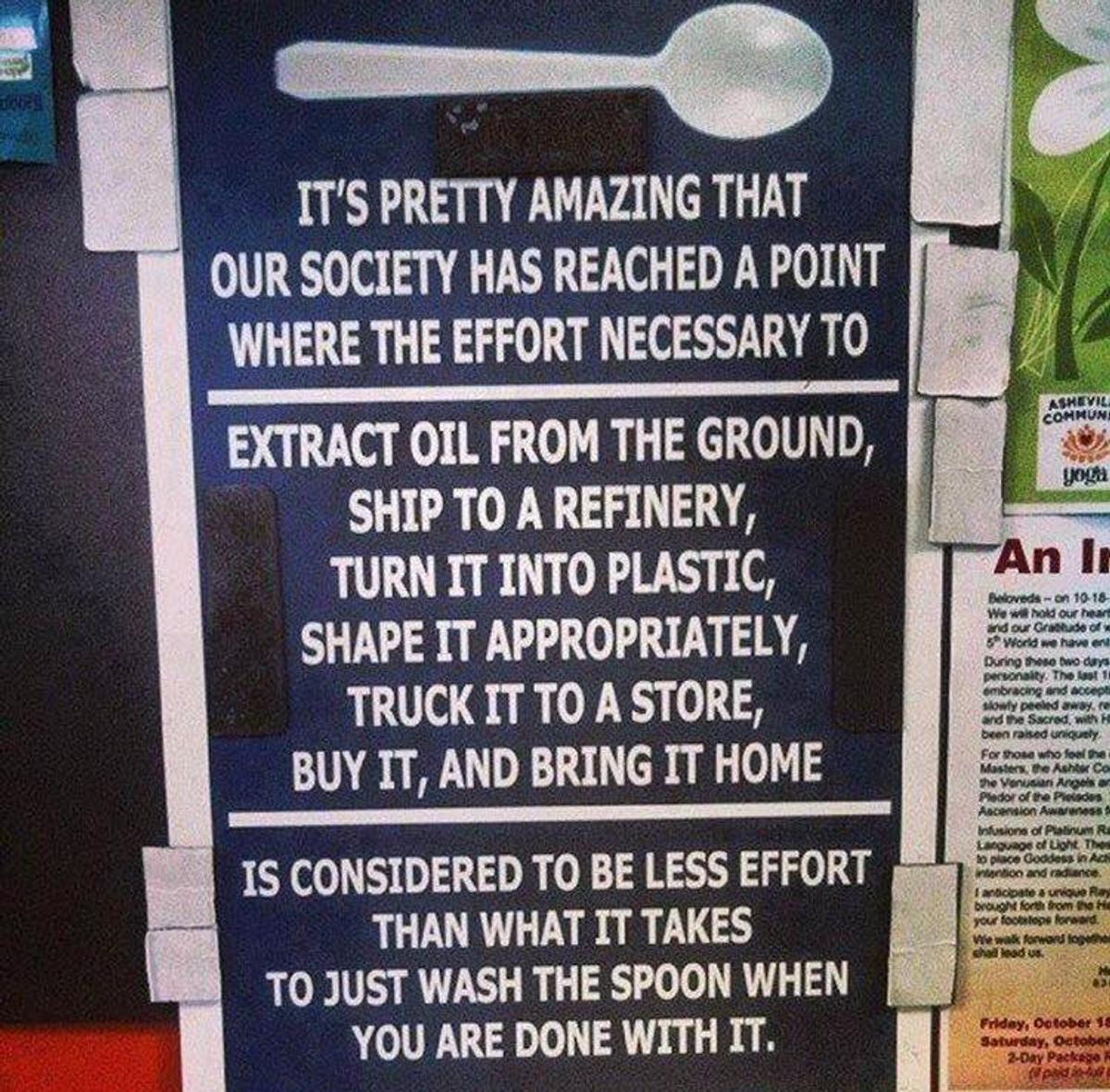Sustainability at Frankston High School

Plastic is certainly not fantastic.
By 2050 there could be just as much plastic in the earth’s oceans as there are marine creatures. The reason for this is not surprising when you crunch the numbers! By 1950 only two million metric tons of plastic waste had been created. In 2017 humans had created 8.3 billion tons of plastic waste. By 2050 it is heading towards 34 billion tons of plastic waste. The human appetite for plastic and the convenience it brings is insatiable.
But why care?
Current evidence is suggesting that plastic is entering the food chain to a significant degree – different studies from all around the globe have shown that micro plastic is in everything, from drinking water through to some of our food supply. Another study has shown micro plastics in one-hundred percent of human subjects tested. Health studies on the ramifications of this are only just beginning. This is not to mention the harm plastic is doing to a great range of animals who ingest plastic thinking it is food. This is the reason sea food contains so much trace evidence of plastic.
Plastic is leaving our oceans and beaches in a visual mess. Floating marine debris is ridiculously common and can completely compromise a beach’s natural look. Many uninhabited islands across the pacific are riddled with plastic debris because of the way ocean currents flow (Google Henderson Island for further information). However it is the micro plastics, the ones that can hide in the environment, that are most dangerous. Have you ever picked up a coloured piece of ‘sand’? If you have it was most likely what is referred to in the industry as a plastic resin pellet (or nurdle). This is what all plastic products are made from, and they are now such a common pollutant in the world’s oceans that they are washed up on beaches around the globe and disguise themselves as part of the sand. Frankston beach is no exception to this – particularly in between the Frankston pier and Waves. Have a look next time you are down amongst the lovely coastal area.
What is Frankston High School and the Eco Team doing?
Phase one of reducing plastic use at Frankston High School involves banning single-use plastics in their entirety from the school. This includes such things as plastic straws, plastic cutlery and glad wrap. These are products that are typically used once and thrown away. These single use products will last in the environment for, at least, hundreds of years. All for a few moments of convenience. A school wide ban will likely take place from the start of the 2020 school year, with efforts over the course of 2019 concentrating on education in how to avoid single use plastics and the alternatives that are available.
Phase two will likely involve a school wide audit of plastic use and ways to significantly decrease our reliance upon plastic products with recognition of a ‘refuse, reduce, reuse, repurpose, recycle’ campaign that has all departments within the school working towards a minimal use of plastic products within their areas.
Phase three will be a move towards only having essential plastic consumables available within the school. Things like medical necessities and learning equipment.
Of course none of this will be possible without support from the entire school community. It is certainly a lot to ask, however in comparison with future forecasts of what will happen if we do nothing, it pales into insignificance.
So, what can you do to help?
- Consider how your child’s/children’s lunches are packaged and sent to school. Could you avoid sending the glad wrap? Could you use paper bags instead? Could the whole lunch be contained in a lunch box without any wrapping?
- Could you ask your child/children to bring their soft plastic rubbish (any plastic that you can scrunch up in your hand) home and then take it to Woolworths or Coles to be placed in their soft plastics recycling bins? This will then likely be turned into furniture by a company named REPLAS in Carrum Downs!
- Can you use an alternative to single use plastics at home? For example using normal cutlery as opposed to plastic. At the most recent staff curriculum day Frankston High School staff swapped from using throw away plastic cutlery and plates to metal cutlery and ceramic plates obtained by Eco Team members from local op-shops.
- Can you refuse plastic straws at restaurants? Most of us don’t need them but it is something we just accept because we are so accustomed to it.
- Can you encourage others to also reduce their use of plastic?
For further ideas just ask Google.
I’m hoping that together we can all make a valuable contribution in making the world better for our students and future generations.
Mr Brendan McKinnon
Sustainability Coordinator



